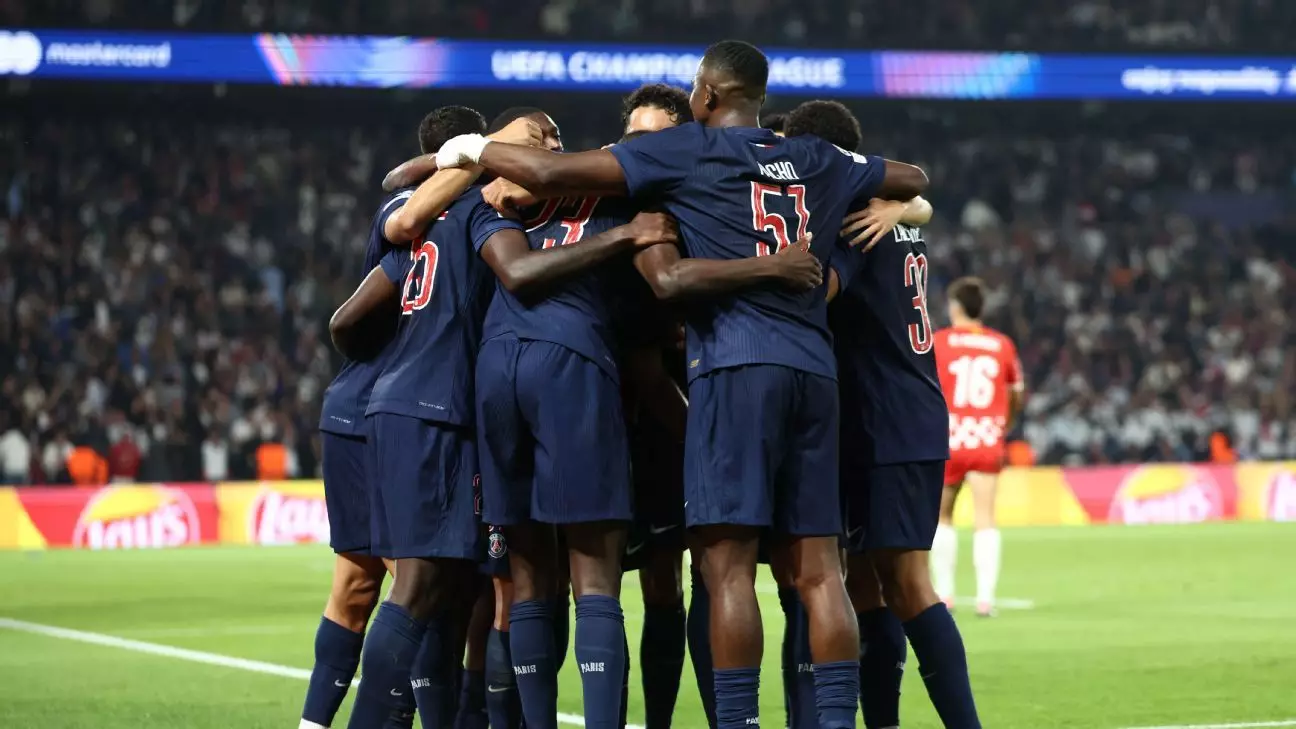The world of football, especially in Europe, has faced numerous challenges surrounding fan behavior, particularly when it comes to discrimination and homophobia. Recently, Ligue 1 condemned the anti-gay chants voiced by some Paris Saint-Germain (PSG) supporters during their home match against Strasbourg. This incident has not only highlighted the worrisome issue of intolerance within the sport but also underscored the symbolic significance of the rivalry between PSG and Marseille, which is fraught with emotional history and animosity.
The Raging Rivalry
The upcoming clash between PSG and Marseille, one of football’s most intense rivalries, amplifies the underlying tensions that often spill over into offensive behaviors. Adrien Rabiot, now a player for Marseille, is a focus of disdain from some PSG supporters, as his departure from the club is perceived as a betrayal, fueling further animus. The chants that emerged from Parc des Princes during the match are reflective not just of individual enmity but also of a broader cultural problem within the league, which has been trying to eradicate discrimination in all forms.
Ligue 1’s swift condemnation of these chants is a necessary step in addressing such behavior, indicating that the league is acknowledging the seriousness of the situation. Their statement emphasized that these discriminatory echoes are intolerable, especially in an era when professional sports leagues are actively working towards inclusivity and respect for all. The irony of an announcement made by the stadium’s announcer urging fans to halt the derogatory chants—only to be met with jeers—speaks volumes about the challenge faced by organizations combating entrenched attitudes among certain segments of fans.
This isn’t the first time PSG has faced scrutiny; players were previously placed under a suspended sentence for engaging in offensive chants after a match against Marseille. Such incidents raise critical questions surrounding not only fan engagement but the responsibilities of players who are seen as role models. Apologies from the players involved, including stars like Ousmane Dembélé and Achraf Hakimi, demonstrate an understanding of the impact of their actions but highlight the recurring need for stricter accountability.
Additionally, the on-field and off-field rivalries have implications for fan safety. The decision to ban PSG fans from attending the upcoming match in Marseille stems from an intricate history of violent clashes, providing an additional layer of concern. Both historical and recent escalations of violence underscore the need for proactive measures beyond merely punitive responses.
Ultimately, the battle against racism and homophobia in football transcends the immediate incidents witnessed in stadiums. It requires a collective commitment from leagues, clubs, players, and fans to ensure that the sport can truly be a reflection of diversity and unity. As PSG prepares for another confrontation with Marseille, it is critical to foster an environment where respect trumps rivalry, thus illustrating that the game is as much about how we act off the pitch as it is about what happens on it. The future of football depends on this transformation.

Leave a Reply